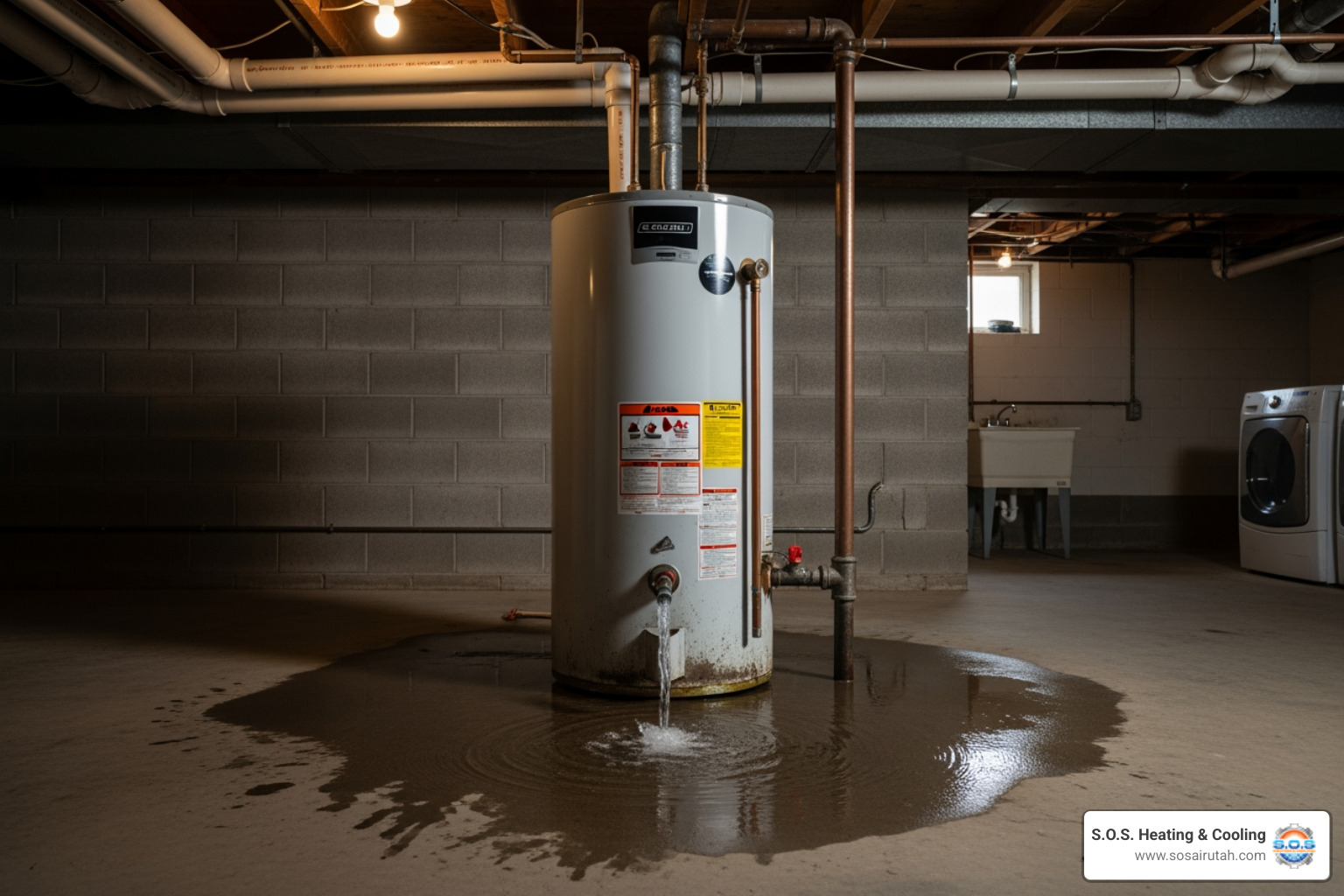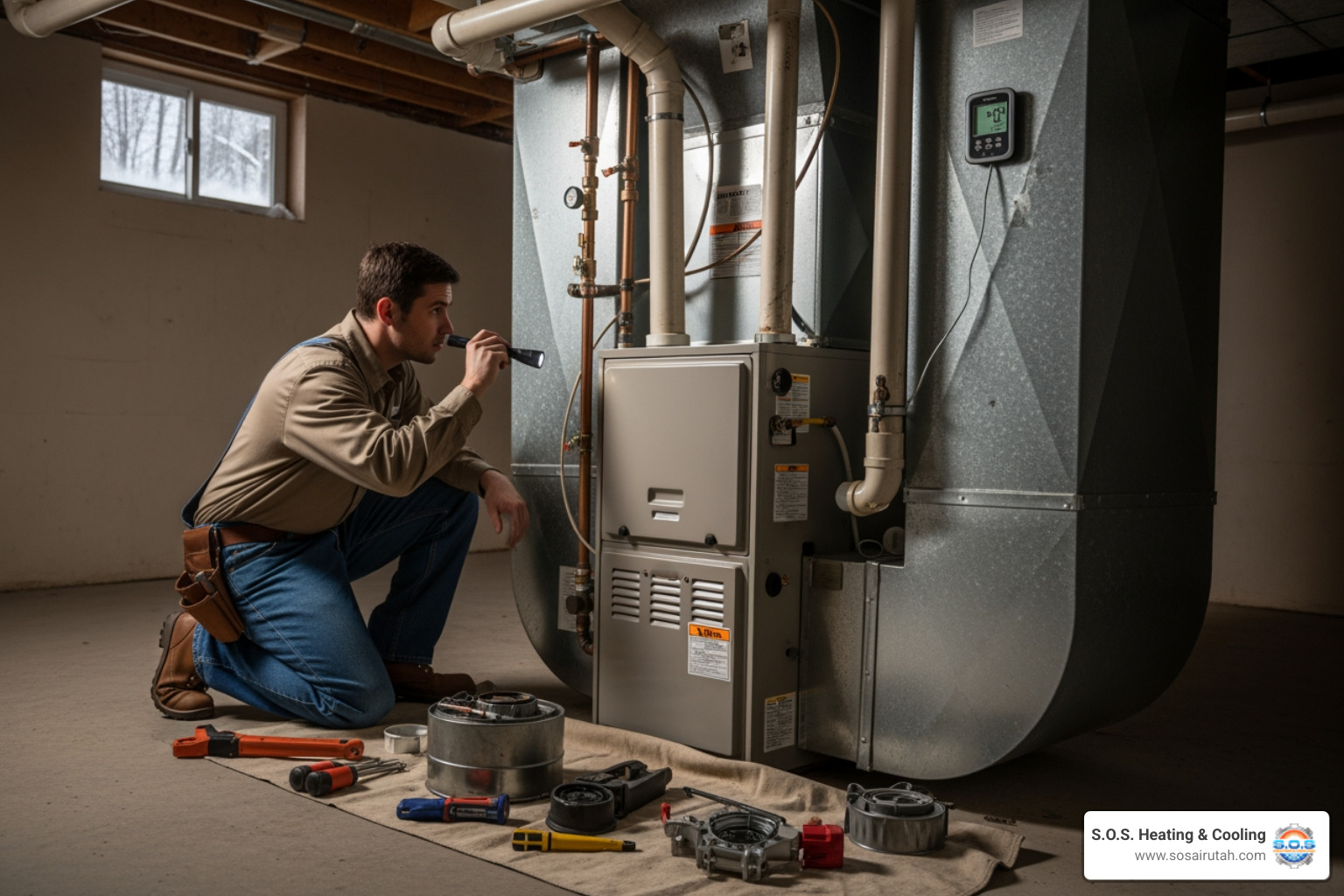
When your air conditioner starts making a high-pitched noise, it can be both annoying and concerning. This kind of sound often signals that something inside the system is not working correctly. During late summer in Millcreek, many homes rely on their AC system each day. Any loud or unfamiliar noise stands out quickly. A high-pitched squeal or screech is more than just about comfort — it is a warning sign you should not ignore.
These sounds may be caused by specific issues that can get worse if left unchecked. Identifying the cause early helps avoid more damage and keeps the home cool and safe. Even though the system may still turn on, running it with a problem can lead to more expensive repairs later. If your AC in Millcreek is making a high-pitched sound, here is what could be going on and why action is important.
Common Causes of High-Pitched AC Sounds
Homeowners in Millcreek often report high-pitched sounds coming from their AC systems during peak summer months. These sounds can point to mechanical or internal problems that need attention. Below are several of the most common reasons your AC might develop this issue:
1. Loose or Worn Fan Belts
Older AC models have belts that can wear down or loosen with age. When a belt slips out of place, it can cause a loud squeal. This pitch gets worse the longer the system runs, especially under higher heat loads at the end of summer.
2. Issues with the Compressor
The compressor is one of the key parts of your AC system. If it starts to fail or builds too much pressure, it can make a sharp, high-pitched whine. This is often a serious issue and could point to pressure imbalances or system overload. Compressors can also suffer from electrical problems, adding to the noise you hear.
3. Refrigerant Leaks
When refrigerant escapes through a leak, it may create a high-pitched hissing sound. While it might not be as loud as a failing belt or compressor, it does have a distinct tone. This sound is usually constant and can happen even when the system is not running at full power. Leaks like this lower your unit’s cooling output and can damage other parts of the system.
4. Malfunctioning Fan Motors
If the fan motor is failing, bearings inside can wear out. This wear often produces a screeching sound while the fan spins. The noise tends to come and go during operation. A buzzing sound sometimes follows, which could mean electrical resistance building in the motor itself.
If any of these issues are present, the AC may still run, but it is under stress. That stress can lead to full breakdowns or poor temperature control. It is best to treat these sounds as early alerts rather than minor annoyances.
Dangers of Ignoring High-Pitched AC Sounds
Letting high-pitched AC noises go unchecked opens the door to more serious and expensive problems. What starts as a mild squeal today could turn into full loss of cooling tomorrow. Here is what you risk when you overlook these kinds of AC sounds:
- AC system damage: A faulty fan motor or belt can bring the entire unit to a stop if it breaks mid-cycle. Belts may snap and damage other internal parts. Motors that seize up create more strain on the electrical system and can pull more power than the system is built to handle.
- Higher repair costs: A worn component often costs less to fix than the damage it could cause over time. For example, a simple belt replacement might become a total motor replacement if ignored.
- Comfort disruptions: Noise is one thing, but cooling performance is another. Many high-pitched sounds come from problems that slowly reduce how well your AC keeps the home cool. If temperatures inside your Millcreek home are uneven or rising, you may already be feeling the effects.
One example is a homeowner whose AC made a sharp whistling noise a few summers ago. They put off calling for help until the sound got louder and the airflow dropped. By the time they reached out, the compressor had failed from overheating tied to a small refrigerant leak that went untreated.
The longer these sounds are ignored, the greater the chances of that happening. These are not problems that fix themselves. Acting early limits risk, keeps the home comfortable, and saves money in the long run.
When to Call Our Professionals for AC Repair in Millcreek
If the high-pitched sound from your AC in Millcreek continues or gets worse, it is a clear sign that it is time to reach out to our professionals. Short-term noise might be tied to something harmless, but constant or recurring squeals usually point to mechanical trouble. Homeowners who wait too long often learn that the repair cost goes up the longer the issue is ignored.
Here are signs that it is time to bring in our technicians for AC repair:
- The sound appears during every cycle or gets louder over time
- Airflow through the vents is weaker than normal
- Cool air is not reaching parts of the home evenly
- The unit turns off and on frequently without cooling well
- There is a noticeable increase in your energy bill along with the noise
Interruptions in cooling can cause stress, especially during hotter days in late summer. If your AC's performance drops or starts making more than one unusual sound, do not wait to get it checked. Sound-based issues often overlap with wear and tear in other parts of the system. Even if the unit is still technically running, that does not mean it is working as it should.
Homeowners sometimes try to wait out the noise, thinking it will go away. But in many cases, it is a warning sign. For example, a resident in Millcreek reported a high-pitched whistling that only happened for a few minutes each day. Within a week, the unit stopped cooling completely. The issue turned out to be a failing fan motor that could have been replaced with less cost had it been addressed immediately.
Regular Maintenance Tips to Prevent AC Sounds
Some AC noises are avoidable with regular maintenance habits. The goal is to find and fix potential problems before they turn into larger repairs. Once cooling season arrives in Millcreek, you want peace of mind that your system will operate smoothly and quietly.
To minimize high-pitched sounds from your AC, here are a few simple steps:
1. Schedule routine inspections to check for early signs of wear
2. Replace worn fan belts before they slip or snap
3. Monitor refrigerant levels and fix leaks as soon as they are found
4. Pay attention to airflow shifts or short cycling patterns
5. Check vents and filters to make sure air is moving as it should
6. Do not ignore small changes in sound, even if the system still cools
Small issues like loose belts or uneven fan speed create strain across all components of the system. These problems spread quickly if the unit keeps running without service. Planned maintenance does more than just solve mechanical issues — it helps you stay ahead of problems before they disrupt your comfort.
For Millcreek residents, consistent AC care leads to better performance and fewer emergency repairs. A smooth-running system will cool your home more effectively and do so without the strange noises that interrupt warm afternoons or quiet nights.
Ensuring a Quiet and Comfortable Home With S.O.S. Heating & Cooling
Hearing a high-pitched sound from your air conditioner is not something to ignore. These noises are your system’s way of signaling that something needs attention. Whether it is a belt, a motor, or refrigerant flow, acting early can keep your home comfortable and your system running as it should.
Letting small issues continue puts the whole AC system at risk. Blocked airflow, overheated parts, or added strain could lead to breakdowns right when Millcreek temperatures are at their highest. Repairs handled at the right time restore quiet operation, protect equipment, and prevent surprise failures. Fixing the root cause of loud AC noises is one of the best ways to protect the cooling and comfort of your home.
If your AC is making high-pitched noises, it could be a sign of serious issues that require immediate attention. Trust the experienced professionals at S.O.S. Heating & Cooling to diagnose the problem and provide reliable AC repair in Millcreek before the issue worsens. For a quick estimate or to book a service visit, please contact us today.
Explore Our Latest Insights and Updates in Plumbing Services

My hot water heater is leaking. Who are the best emergency plumbers in Salt Lake City?

Don't Freeze! How to Get Emergency Furnace Maintenance in Bountiful Fast

Finding Your Perfect Match: Expert Heating Tune-Ups in SLC






.avif)